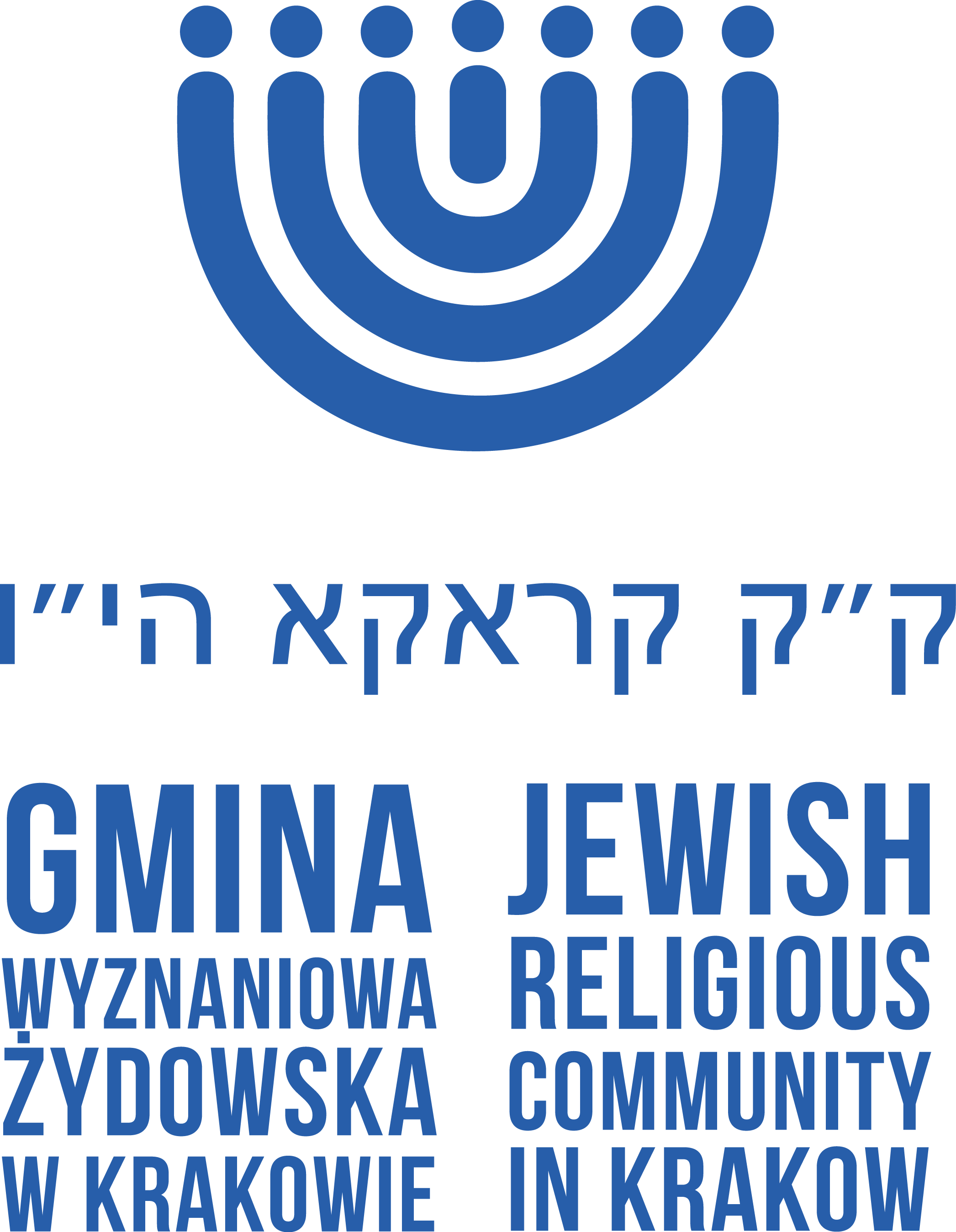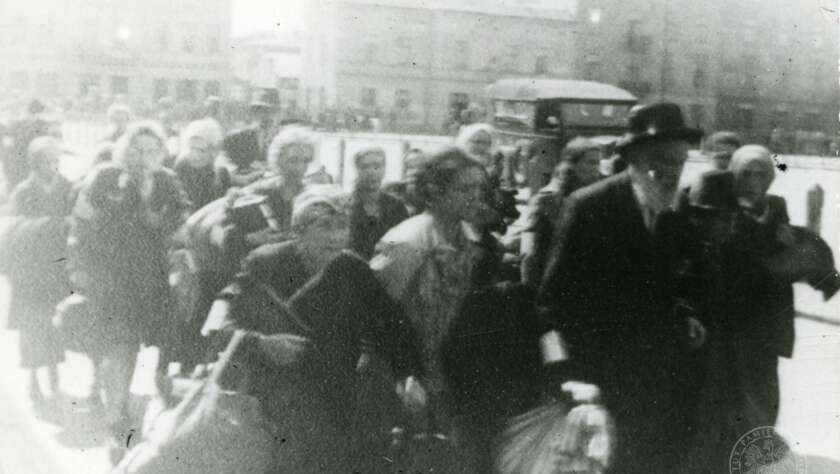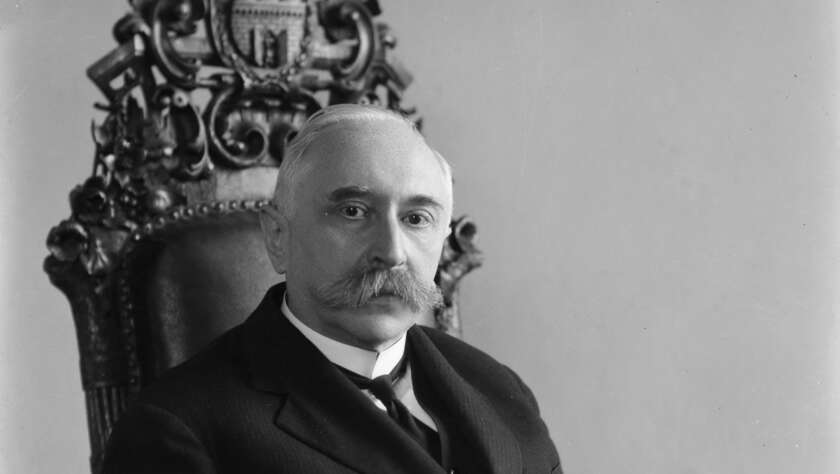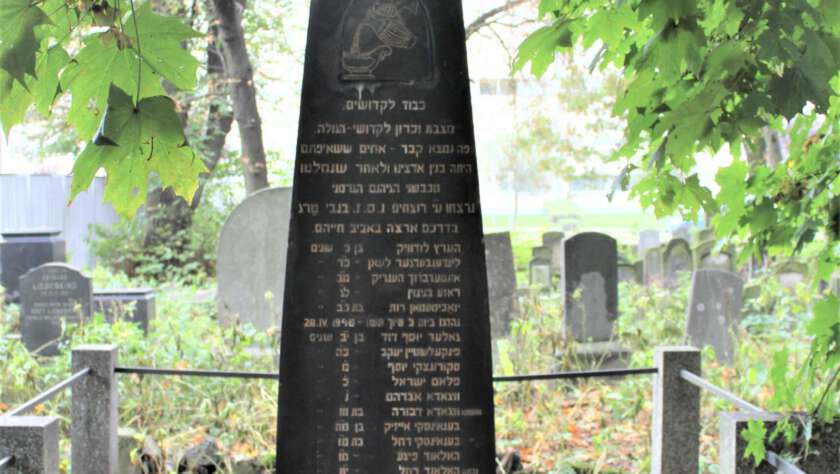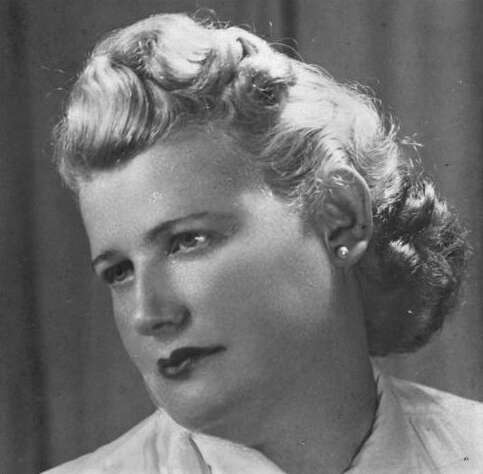On 6th and 7th June 1919 Krakow witnessed anti-Jewish riots. According to the Police Director, 59 Jewish merchants fell victims of these events.They lost approx. 4,1 mln Crowns. 222 people were arrested, 63 of which were improsoned, while over 100 were released pending trial. All these events were pure robbery which cost lives of 2 random people. The main targets of these robberies were shops located at Starowiślna street. The Police did not do anything to prevent these robberies. It is worth noticing that Krakow authorities appealed to the citizens for staying calm by saying ”Let us not allow anarchy take us over. Let us ignore the Bolshevik havoc. Let us not give our enemies a weapon against ourselves”. The Labourers Council of Krakow expressed their point…
The holocaust of Krakow’s Jews began at the end of May 1942 together with checking Kennkarte which allowed for staying in the ghetto. The purpose of this initiative was to select people staying illegally in the ghetto. German occupational authorities had a rule, according to which, the unemployed and people over 55 years of age were to be expelled. Thus, a valid stamp confirming the employment was a determining factor. On the night of 30th/31st May 1942, the first group of Jews was gathered at Plac Zgody only to be sent to the Bełżec camp two days later. The initiative continued until June. Following Elżbieta Rączy’s words in her book ” Zagłada Żydów w dystrykcie krakowskich w latach 1939-1945” (Holocaust of the Jews in the Krakow district…
Józef Reinhold , born on 25th May 1884 in Tyśmienica, was a judge and law professor at the Jagiellonian University. He graduated from a secondary school in Stanisławów in 1902. Reinhold soon started studying law at the Faculty of Law and Political Skills of the University of Lviv. After two years he moved to the Faculty of Law at the University of Vienna, where he obtained his PhD title in Law in 1907. Between 1908-1909 Reinhold did complementary studies in Berlin on the famous F.Liszt seminar. After completing these studies, he had an internship at the local Trade Court. In 1910 he got a position at the National Court in Krakow. According to Andrzej Dziadzio, Reinhold did not consider moving to Krakow a sacrifice. As a Galician…
Born on 25th May 1865 in Rzeszów, Dawid Alter Kurzmann was a local merchant, social activist and philanthropist in Krakow. After moving to Krakow in 1887, he lived at Mostowa 10. After the 1941 expulsion, Kurzmann was forced to reside at Plac Zgody 16 (currently – Plac Bohaterów Getta). He was connected with the Chassidic movement and with the Reb Aron house of prayer located at Józefa 33. At the same time, Kurzmann was very active at Agudat Israel – an international party uniting Orthodox Jews, where he held the position of a vice-chairman of the Krakow branch. Being incrediby active in the local Jewish community, he joined the board of a newly- opened Jewish Religious Community in 1937, where he was in charge of religious matters. What…
Ignacy Landau , son of Mojżesz and Rebeka, née Breiter, was born on 23rd May 1870 in Krakow.After graduating from St. Jack’s Gymnasium in Krakow (1887) and the Faculty of Law at the Jagiellonian University (1891), Landau obtained his PhD title in 1893. He was a lawyer as well as a Krakow City Councillor (1905-1924, 1926-1934). Ignacy Landau held the position of Deputy Mayor of the city of Krakow three times (1929, 1931, 1933). A supporter of assimilation, a co-founder (together with dr A. Gross) of the Party of Independent Jews, a member of the Polish Democracy Party, a member of the Sejm Krajowy for the Democrats (1908-1913), a representative of the actual equality of the Jewish community, a signatory to the Jewish declaration (August 1914) which…
On 14th May 1944, the Germans carried out one of their most horrific plan. Lorries which arrived at the Płaszów camp, parked at the Kinderheim (the camp orphanage). While the loudspeakers were blaring a well-known German song for children, ”Mummy, give me a pony” (German: Mamatschi schenke mir Pferdchen), the Germans were forcing the children into the vehicles only to drive away with them. The fate of those children can be easily guessed…. This day is considered most tragic in the history of the Płaszów camp.
Włodzimierz Sztejn (Stein), son of Naum, was born on 11th May1913 in Sławuta. Sławuta was a city dominated by the Jews who constituted around 65% of all city residents in 1870. In the interwar period, the city was located on the Soviet Union territory near the Polish border. During WWII, the Germans murdered almost all Jewish residents in Sławuta. One of the few who managed to survive was Włodzimierz Sztejn.On 22nd June 1941, after the German agression in the Soviet Union, he was captured as the Red Army soldier. In order to hide his Jewish origin, he destroyed his documents but still needed to explain the circumcision. Off the cuff, he came up with the idea of having Muslim roots. Since that moment he started functioning as…
A group of thugs connected with a Partisian Grouping called ”Błyskawica”, led by Józef Kuraś (alias ”Ogień”), opened fire on Jewish civilians who were trying to cross the border, killing several of them. This incident took place on 2nd May 1946 near Krościenko. „Brochures distributed by ”Ogień” across the Podahale region always included the same element – comparing the Jewish community to the communist regime”, a brochure issued in 2017 by the Krakow branch of the Institute of National Remembrance notes. As long as eliminating the Secret Police officers could be explained, the violence directed at regular people who were not linked to any political activities cannot be excused. During the negotiations with the Secret Police in 1946, Kuraś appealed for the expulsion of Jews from Podhale,…
Maria Róża Jakubowicz , daughter of Abraham Pistol, was born on 1st May 1918 in Dobczyce. Maria Róża Jakubowicz was described by Sławomir Pastuszka in Nasza Gmina (Our Community) as the epitome of a Jewish woman who was called ” The Community’s Mother” by the Jews in Krakow. Her incredible personality contributed to creating a close bond between the Krakow Community members. Jakubowicz’s special character allowed them to feel the atmosphere of a real Jewish home that was lost by the majority of members during holocaust. Her heroism and bravery during WWII are admirable. After getting to Krakow in June1945, Maria Jakubowicz got involved in the work for the Regional Jewish Commitee at Długa 38. Her main duties included looking after children, mostly orphans, who survived on…
A building permission for a synagogue was granted to Izak Jakubowicz by the King on 30th April 1638.
A building permission for a synagogue was granted to Izak Jakubowicz by the King on 30th April 1638. Before we proceed to the topic of the synagogue itself, let us get familiar with the Jakubowicz family. Izak, known as Reb Ajzyk reb Jekeles, was their pride and joy. Mojżesz Eberls, the progenitor of the family, the father of Jakób, known as reb Jekele – Jakóbek Bogaty, was also a community senior and a member of the Codification Comitee (”Rada Siedmiu”) which developed the qahal charter in 1595. Jekele had two sons: Izak and Mojżesz. Izak Jakubowicz held the position of a community senior through amost all his life (1608-1647) only to hand the power to his eldest son, Mojżesz, as an elderly man. Izak was engaged in…
